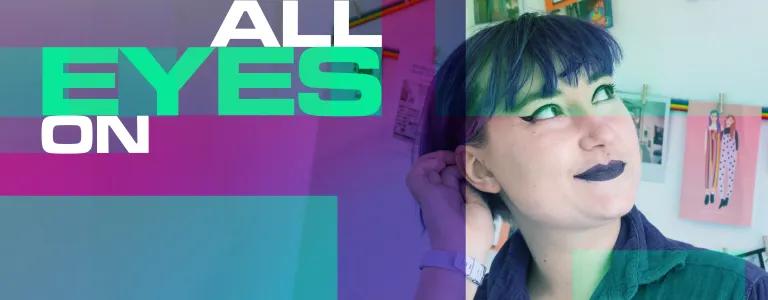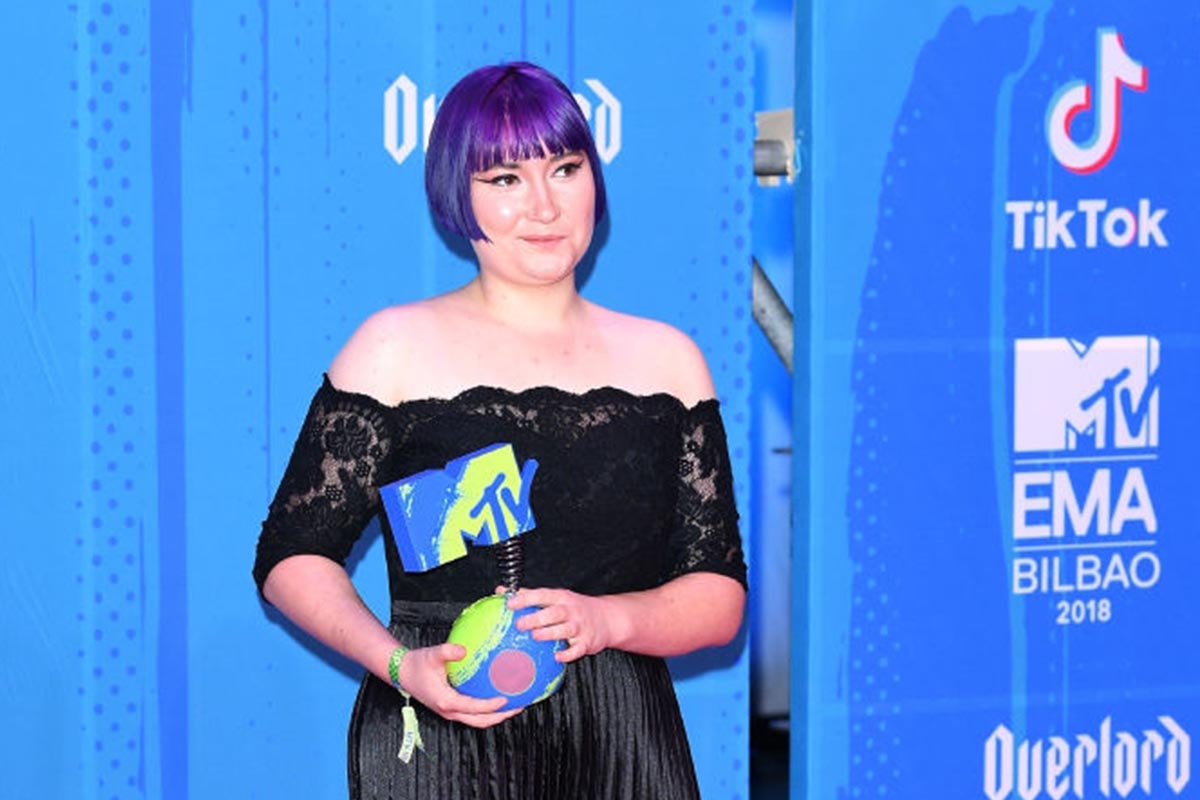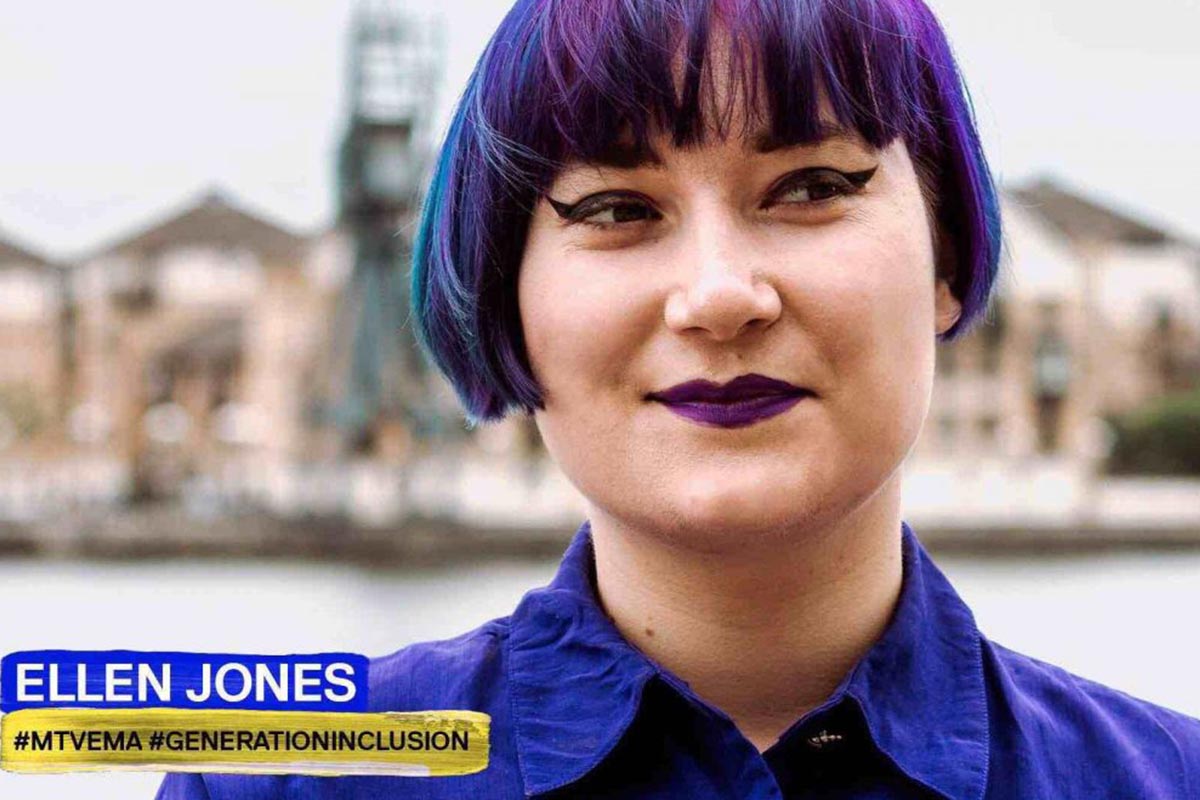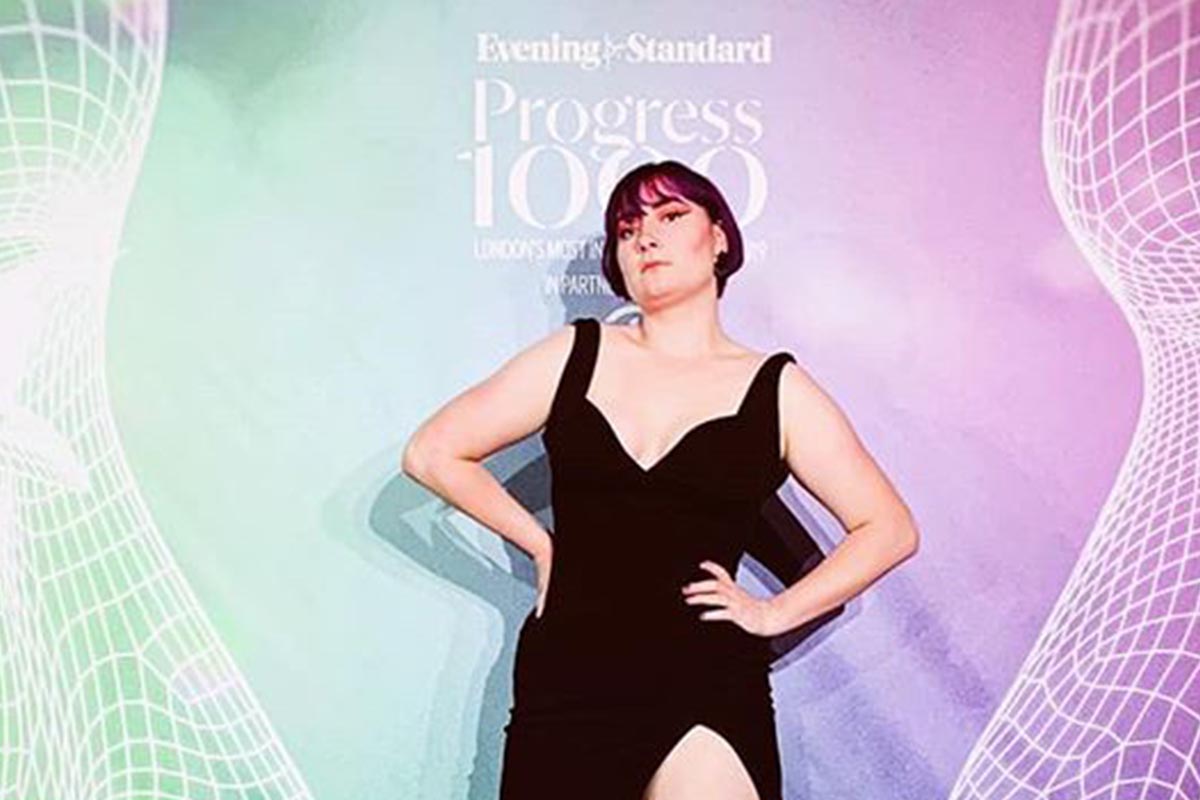
Ellen Jones, LGBTQ+ Rights Campaigner
Our series celebrating great people achieving great things continues. And this time, it’s all eyes on Ellen Jones – an award-winning LGBTQ+ rights campaigner who couldn’t be more worthy of the spotlight. Here’s her story…
Who’s ‘Ellen’ in a nutshell?
I’m a campaigner, writer and speaker who works in LGBTQ+ rights, mental health and disability – especially the spaces in which those aspects overlap.
So what started your fight for a better world?
I was bullied fairly extensively for being a lesbian when I was at school which had a really significant and long-lasting impact on my wellbeing. What upset me was not only the abuse, but the fact that teachers (even those who were sympathetic) weren’t equipped to deal with what was going on because they had never been trained. And many of them had been teaching during a time when talking about LGBTQ+ issues in the classroom was illegal.
I was angry not at the people who were homophobic but at the systems which had meant these people had begun to think that hate was acceptable.
What do you think are the biggest issues the LGBTQ+ community currently face?
Complacency, largely. Especially in countries where it is no longer illegal to be LGBTQ+ or where we have marriage equality, it is easy to think that our work is done.
In reality, we have barely begun and I think a lot of LGBTQ+ people realise this, but our allies haven’t because they are distanced from the issues at hand. We must remember that we live in a world that persecutes transgender and gender non-conforming people, which performs surgery on intersex children without their consent – and in which gay and bisexual men are being rounded up in to camps in Russia.
Being LGBTQ+ is still illegal in the vast majority of countries, punishable by death in nine of them. We cannot begin to think we are done in our work.

You’ve written about LGBTQ+ issues a lot. Of all your written pieces, which did you find to be the most rewarding and why?
The most rewarding piece was definitely the review I wrote about Hannah Gadsby’s show Nanette. Nanette articulated so many thoughts I had about homophobia and the nature of trauma and what healing looks like.
I have used humour a lot to deflect from insecurity about being gay and as I wrote - ‘it has been easier to make jokes about being a lesbian than it was to be a lesbian, simpler to be a punchline than a punching-bag’. It was a very emotional piece to write and the response was overwhelming as well, as I realised I wasn’t alone.
Has entering into the activism space opened up opportunities for you? Are any of them completely unexpected?
I never expected there to be such a figure of interest because disruptors like me historically have not been people to support or elevate. I think a lot of my reputation comes from being in the right place at the right time.
The media interest is particularly intriguing - youth activists have become a real source of interest and we are seeing figures such as Greta Thunberg receiving celebrity status, despite her assertions that she does not want this.
I’ve no doubt being an activist has also closed doors for me, too. My CV essentially outs me as someone who is queer and disabled and not afraid to stand up for my rights.
Businesses that I might want to work for are nervous of this, because they see me as something of a nuisance or someone who might rock the boat. The way I see it, if you’re an inclusive employer (as many claim to be), they have nothing to worry about.
You draw on your personal experiences and speak your truth so much in your writing and campaigning. Do you think that’s essential for good writing, and making an impact?
I use my own experiences a lot in my work, but I see that as a huge privilege to be able to do so. I can talk openly about being LGBTQ+ and autistic and mentally ill because I have support around me.
I know some incredible writers and creatives for whom outing themselves is incredibly dangerous and I would never want to suggest that they are not good writers or that they don’t have an impact.

Have you faced any challenges along the way and how did you overcome them?
The biggest challenge has been being taken seriously and being consistently underestimated. Sometimes that was because of my age, my gender or because I have bright purple hair. I have somehow ended up in rooms with lots of very conservative men in suits who patronise me or ignore my presence completely.
I’ve had to learn how to make my voice be heard and not let being the only person who looks like me be intimidating. It’s been a lot of ‘faking it till you make it’. I also try and use my position of having my foot in the door of some industries to hold the door open for as many people as possible.
Youth activism is dominating the social sphere right now. Who are the other young advocates that you really admire and why?
I’ve been incredibly fortunate to work alongside some incredible youth advocates due to my work, not just in this country but around the world.
Hauwa Ojeifo is one of them; a mental health and anti-sexual violence advocate based in Nigeria doing incredible work.
Feliquan Charlemagne is the creative director of the US Climate Strike movement and talks about how climate change displaced him and his family from the Caribbean and the importance of centering black and brown folks in climate change activism.
You are a champion for social change and encourage others to do the same. How do you measure the impact that your advocacy has on others? What counts as a good result?
This is something that has changed over time and can depend a lot on what I’m doing. I spent a long time trying to change the world all at once which was a thankless task and almost impossible.
What I realised is that there is huge power in changing one person’s mind, or making them ask questions about long-held beliefs. Changing one person’s mind can go on to impact their friends, family and wider social circle. The most important conversations we have are the ones with those around them and I never want anyone to think that they aren’t making a difference.

What’s the best piece of advice you’ve been given?
Learn to take breaks. You can’t work all of the time and especially when your work is tied to personal experiences or your identities it is incredibly easy to feel like you cannot take time off.
But, if you’re engaged in hard and distressing things all of the time there’s no way you’re going to be able to go on indefinitely. Take breaks, the fight will be waiting for you.
Any other advice you'd give to those who want to make a change?
Don’t be afraid of being unlikeable. If you’re rocking the boat, people aren’t going to like you because they often feel threatened by what you’re saying.
Having achieved so much already, from winning the first-ever MTV EMA Generation Change Award to your numerous features on the Huffington Post, what’s next? What are your activism goals for 2020?
At the moment, I’m working on The Purple Pages which creates and directs people to community-driven resources, tips and tools which are freely available. There are some great resources out there but they often lack personal experience and aren’t made by the community that they’re about – this has never felt right to me.
I also graduate from university this year and this will hopefully free up more time and resources for me to be able to work on improving things across a wider range of areas.

